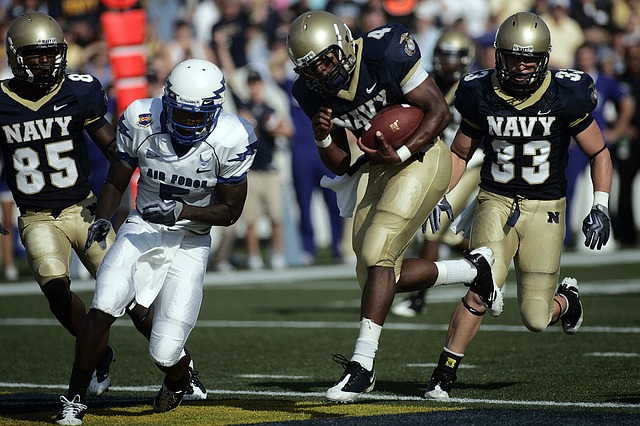How to Find Publicity for Your Sports Team

Not that long ago, media outlets would flock to every sports event or game, regardless of the sports team size. But in today’s day and age where there seems to be a blog or a Youtube channel for every topic imaginable, getting the media’s attention seems impossible.
The good news is that finding publicity for your sports team is not as difficult as it seems. In this post, we’ll share top 10 tips for getting press coverage for your sports team.
10 Ways to Get Publicity For Your Sports Team
Below, you’ll find 10 different ways to get publicity and press coverage for your sports team.
1. Focus On Building Relationships
The most important tip is to focus on building relationships with the media first. Get to know who’s on their team and make sure you understand what type of stories they usually cover and what they’re looking for. This will show them that you understand what problems they’re facing in their job. On top of that, if you offer the type of stories they usually cover, they’ll be more likely to believe you’re not in it just for your own gain.
If you establish a relationship with your local newspaper and media outlets and show them that you care about helping them, they will be more inclined to cover your sports team.

2. Maintain an Active Social Media Presence
Considering more and more people are turning to social media to get their news, an active social media presence is a must. Your social media profiles are not just ways for you to connect with your fans and potential sponsors. They can also be used to get on the radar of various media publications, especially if you engage with them on their profiles.
The golden rule of building relationships on social media applies to media outlets too: share their news stories, comment on their feed, and tag them when you have an event coming up.
3. Update Your Website
Your website should also be up to date. Once you catch the media’s attention, they will be more than likely curious and will click through to your team’s website. The last thing you want is to have outdated information or a website that looks like it belongs in the late 90s.
Go through every page on your site and make sure all the information is relevant and correct. You can also refresh the design or opt for a completely new theme.
4. Submit Your Own Press Releases
While pitching media directly is a great way to get on their radar, don’t forego putting out your press releases. A pitch may go unnoticed but if they are regularly scouring press release sites for news, yours just might catch their attention.
When submitting your own press release keep the following in mind:
- If it’s breaking news, submit the press release as early as possible
- If you’re promoting a game or a smaller event, submit a press release at least a week before
- If you’re promoting a large event , submit the press release at least a month before
5. Be Responsive
Once you’ve submitted your press release or your direct pitch, you need to make sure you can easily respond to incoming inquiries. It’s a good idea to have your phone with you to ensure you don’t miss a call or an email from the media outlet. It’s also good practice to prepare your team members for the possibility of an interview and make sure their schedule has available time slots.

6. Don’t Forget The Human Element
Stories with a human element are more relatable and that’s exactly what most reporters and media outlets are looking for so keep that one in mind as you’re preparing your pitch. Perhaps you’re competing in the hometown of one of your team members. Or one of your team members overcame a major obstacle since joining your team. Whatever the case may be, having a human element in your story is more likely to get you a press coverage than a story without it.
7. Keep The Pitch Short
Remember that reporters are not only busy but they often work with tight deadlines. As such, they probably don’t have a lot of time to read a lengthy pitch. Keep your pitch short and concise, pique their interest, and leave contact information. You can cover other details when they contact you or later, during the interview.
8. Make It Easy For Them
As mentioned earlier, reporters are busy. Make it easy for them to give you the desired press coverage. In other words, instead of waiting for the media to come to you, make their job easier. You can easily do so by following the tips we covered so far:
- Submitting your own press release
- Sending out a direct pitch
- Knowing what type of stories they cover and what they look for

9. Keep Track Of Your Pitches, Press Releases, And Contacts
Another important tip is to keep track of your pitches, press releases, and reporter contacts. With a simple spreadsheet, you can easily see when was the last time you sent out a press release or a direct pitch as well as note down the results. You can also keep track of reporter names.
By keeping track of your press releases and pitches, you’ll avoid the risk of sending the same information to the same media outlet more than once.
10. Follow Up
Our last piece of advice is to follow up. This applies to both sent out pitches as well as following up after you’ve gotten the publicity you wanted. Don’t forget to thank them as this is an excellent opportunity to continue developing the relationship with a particular media outlet or a reporter. It’s also a great time to mention upcoming events or games to ensure they keep you on their radar.
Final Thoughts
While getting publicity for your sports team is not as easy as it used to be, it’s not an impossible task. If you follow and implement the tips in this article, you’ll get press coverage in no time.
Don’t forget to download the cheat sheet that covers how to find publicity for your sports team so you can keep it close as you work through the list.
